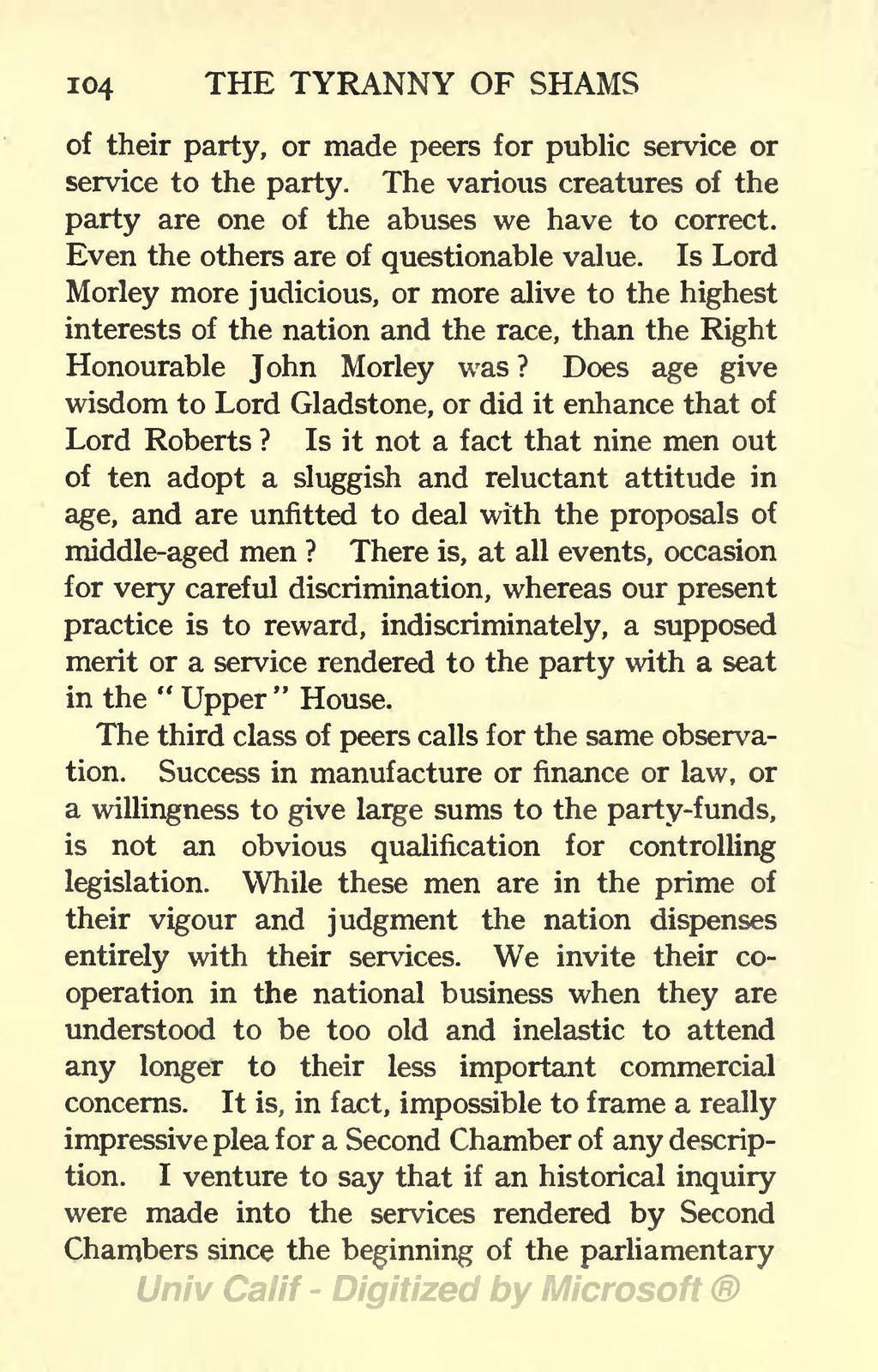of their party, or made peers for public service or service to the party. The various creatures of the party are one of the abuses we have to correct. Even the others are of questionable value. Is Lord Morley more judicious, or more alive to the highest interests of the nation and the race, than the Right Honourable John Morley was? Does age give wisdom to Lord Gladstone, or did it enhance that of Lord Roberts? Is it not a fact that nine men out of ten adopt a sluggish and reluctant attitude in age, and are unfitted to deal with the proposals of middle-aged men? There is, at all events, occasion for very careful discrimination, whereas our present practice is to reward, indiscriminately, a supposed merit or a service rendered to the party with a seat in the “Upper” House.
The third class of peers calls for the same observation. Success in manufacture or finance or law, or a willingness to give large sums to the party-funds, is not an obvious qualification for controlling legislation. While these men are in the prime of their vigour and judgment the nation dispenses entirely with their services. We invite their cooperation in the national business when they are understood to be too old and inelastic to attend any longer to their less important commercial concerns. It is, in fact, impossible to frame a really impressive plea for a Second Chamber of any description. I venture to say that if an historical inquiry were made into the services rendered by Second Chambers since the beginning of the parliamentary
